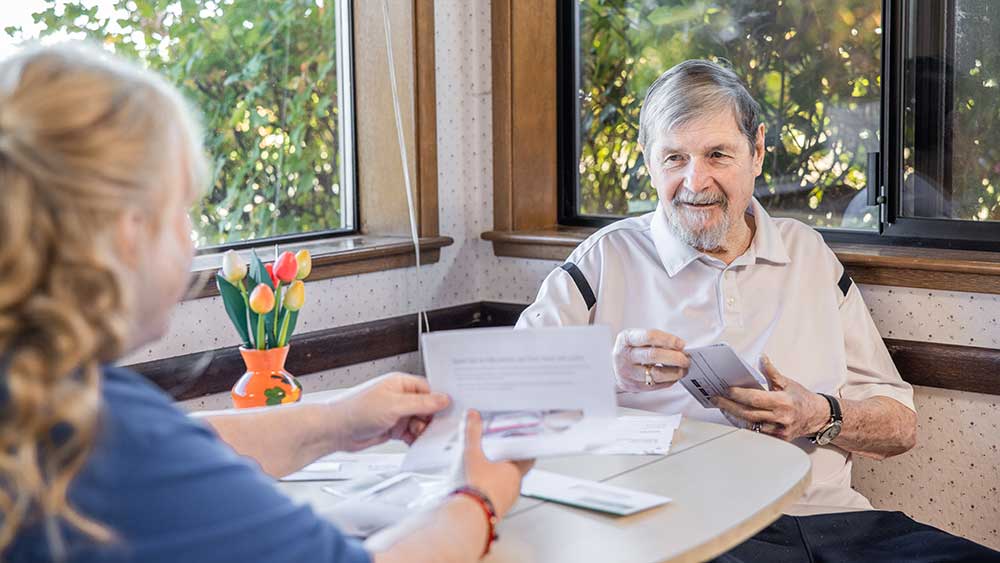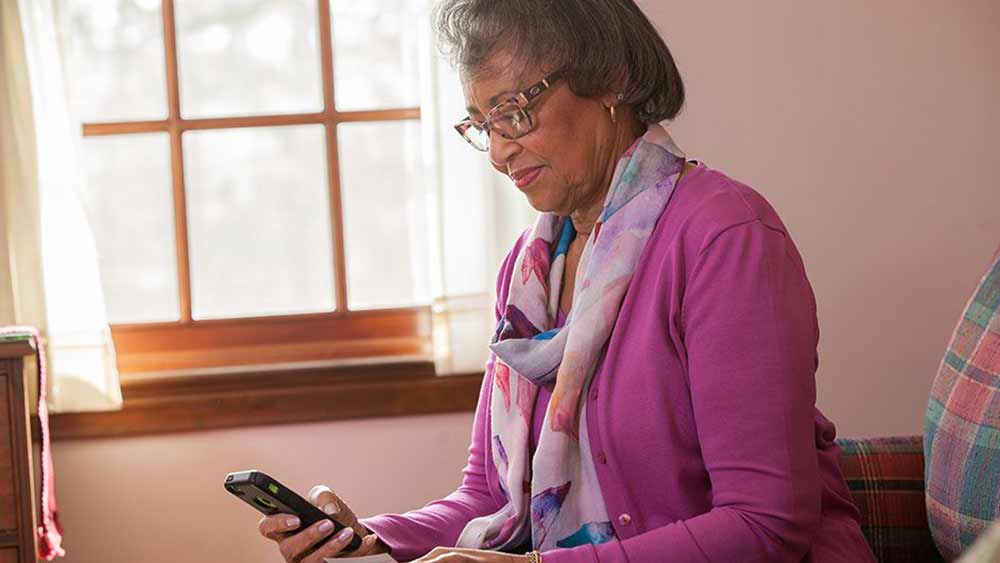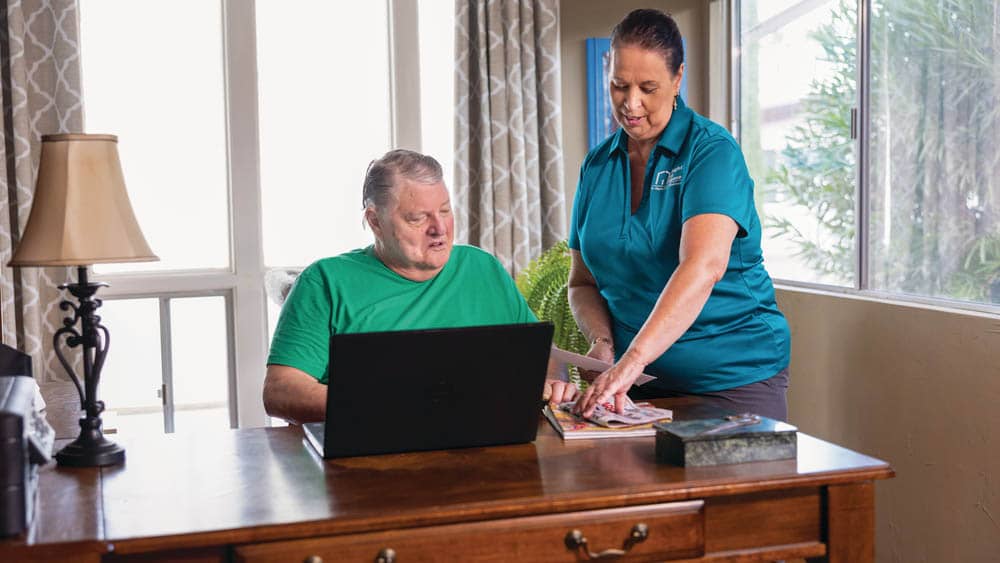
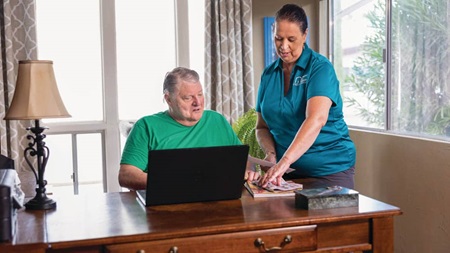
How To Stay Alert To Protect Seniors From Financial Fraud
For many people, April is a special month—it’s springtime, and flowers are blooming; warmer weather is on the way. Perhaps less special is the fact that it’s tax season—a time that brings a collective “ugh!” April also happens to be Financial Literacy Month, and that makes it the perfect time to talk about an important issue: protecting seniors from financial fraud.
Unfortunately, scams targeting seniors are all too common, and scammers often come up with new tricks just when you think you’ve seen them all. Financial Literacy Month is a great time to review the types of scams out there, how to spot them, and what you can do to keep yourself and your older loved ones safe.
What Are the Most Common Types of Scams To Watch Out For?
The tax scam.
Around tax time, scammers pretend to be from the IRS. They might call or email, claiming you owe taxes and need to pay immediately or face jail. Remember: The IRS never contacts taxpayers via phone, email, or social media for personal information.
The grandparent scam.
This scam involves a call from someone pretending to be a grandchild in trouble, asking for money to be sent urgently. The story might involve an arrest, a hospital visit, or being stuck in a foreign country.
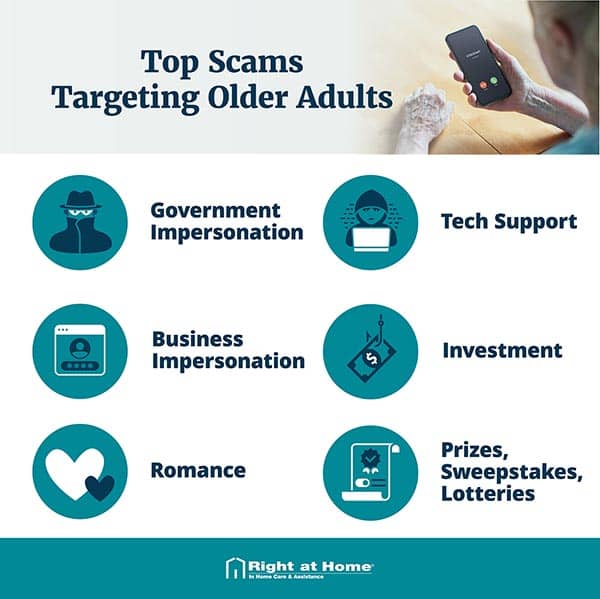
The Medicare scam.
Here, scammers pose as Medicare representatives to get personal information. They might offer free products in exchange for your Medicare number. Be wary; Medicare will never call to ask for your Medicare number or personal information.
The sweepstakes scam.
Who wouldn’t want to win a big prize? Scammers bank on this excitement, telling you that you’ve won a lottery or sweepstakes but need to pay a fee to claim your prize. Remember, legitimate contests never ask winners to pay to receive their prize.
What Are the Signs of a Scam?
- Urgency: Scammers pressure you to act fast.
- Requests for personal information: They ask for your bank account, Social Security number, or other personal details.
- Payment demands: They insist on specific payment methods like wire transfers, gift cards, or cash.
- Too good to be true: Offers that seem unbelievable usually are.
How Can I Help Keep My Older Loved Ones Safe From Scams?
- Education: Talk to your loved ones about common scams, and remind them never to share personal information with strangers over the phone or online.
- Stay involved: Check in regularly and ask if they’ve received any unusual phone calls or emails.
- Secure personal information: Help them secure personal information and sensitive documents. Shred unnecessary papers, and keep important documents in a safe place.
What Should I Do if I Suspect a Scam?
- Don’t panic: Stay calm and gather as much information as possible without giving away any personal information.
- Report it: Contact local law enforcement, and report the scam to the Federal Trade Commission or the AARP Fraud Watch Network. If it’s a tax scam, report it to the IRS.
- Spread the word: Share your experience with friends and family to raise awareness.
Awareness is the best defense against scams. By staying informed and vigilant, you can protect yourself and your loved ones from becoming victims. Keep the conversation going with your loved ones so they can enjoy their senior years without the worry of financial fraud.
How Right at Home Can Help
Right at Home’s trained, professional caregivers can help seniors and their families with a variety of in-home care options. In addition to helping keep older adults safe and helping ensure their well-being, professional caregivers can be an extra set of “eyes and ears” inside the home when family can’t be. Use our office locator to find our nearest location and ask for more information.





